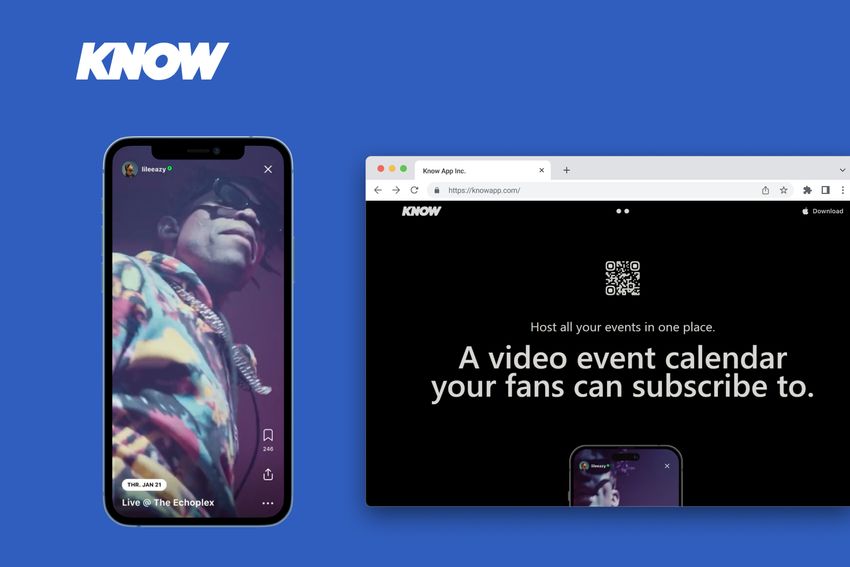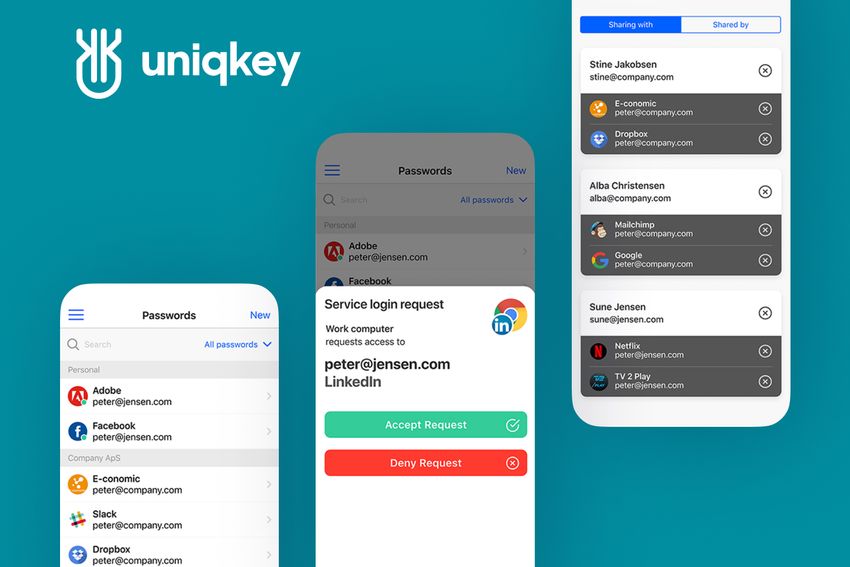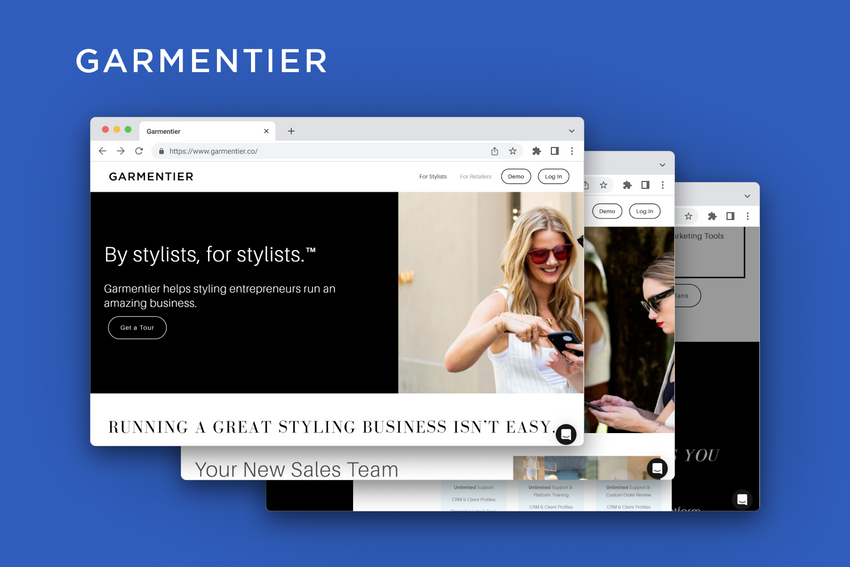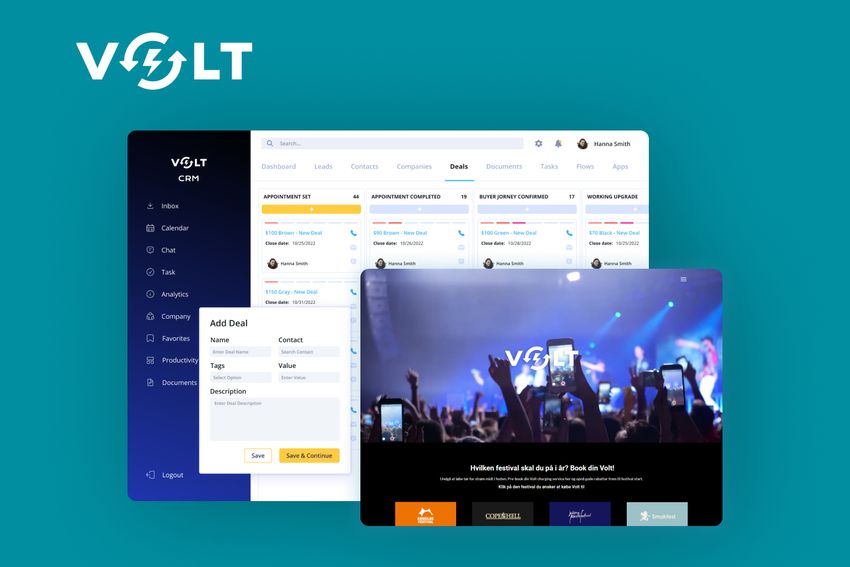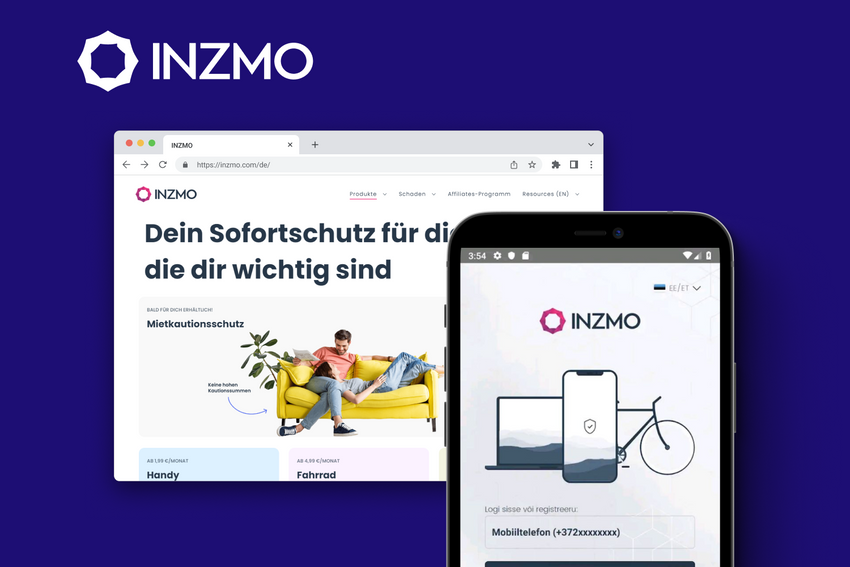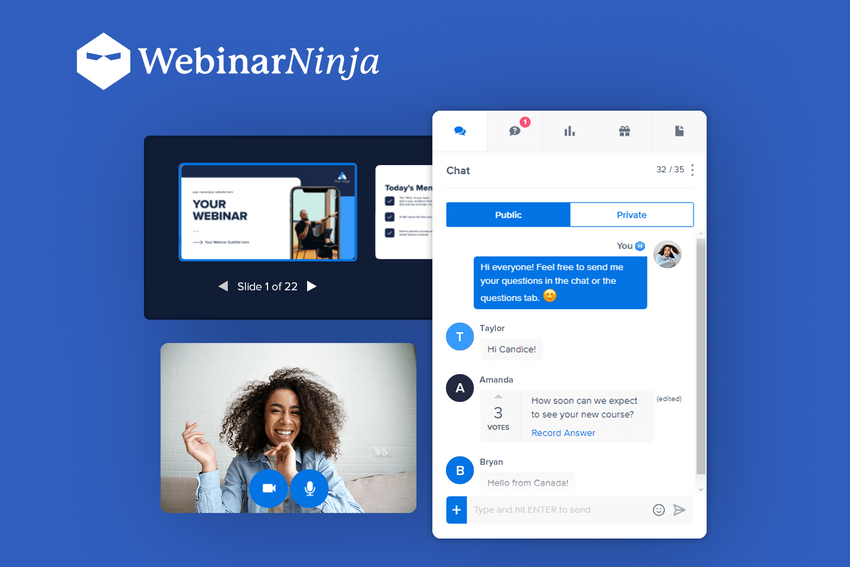Web Portal Development – Benefits and Types of Portals
Check out our comprehensive guide to the types of web portals.
Portal web applications are a go-to solution for any modern client-oriented company. Such online platforms can become a hard-hitting point of attraction for both long-standing and brand-new customers. The powerful magnet-like effect is the reason why the website concept, which appeared at the dawn of the Internet, has not lost its relevance to this day.
So, let's take a closer look at what types of web portals are the most effective and in-demand nowadays. We will also provide you with a rundown of what the portal is all about. And be sure, the article will not do without drawing comparisons between web portals and regular sites.
The Role of Web Portals in the Modern World
The business has always changed under the influence of technology. With the rise of the Internet, companies began to focus on their presence on the great interwebs. Today, many business owners prioritize their digital presence and take a running dive into various online media.
It's hard to get yourself into a mess when investing in digital transformation. We all had a chance to witness this gospel truth in 2019, during the pandemic. According to surveys, at that time, 34% of companies were forced to actively expand their presence on various digital platforms and social media. Most of all, the crisis has caused significant losses to small and mid-sized businesses that did not invest in digital transformation and present-day technology.
According to recent surveys, more than 80% of consumers prefer online media. Therefore, we can safely declare that to keep your business running, it should be moved online. Fortunately, there are many options available to business owners on how to attain this objective. One of the most common alternatives is web portal development.
However, portal development is not a new trick. This is one of the oldest types of websites, which peaked in popularity at the end of the last millennium. At that time, Internet browsers began to take on a shape that was very close to modern ones. So the number of Internet users was growing as well, and companies, along with government agencies, sought to keep up.
Many major representatives of that era still exist – for example, Wikipedia, Yahoo!, or Google. What is most incredible, even today, these cult-favorite portals do not lose their relevance. In general, the very concept of the portal does not lose its relevance. And here's why – in 20 years, no solution has been devised that could function better as a flexible and customer-centric platform!
The idea turned out to be so ingenious and simple that almost all medical institutions, universities, libraries, government organizations, and large companies have their own portal, which can no doubt be called alive and breathing. Apart from this, new portals appear too.
Web-based portals are here to stay.
What Is an Online Portal?
So what is a web portal application exactly? To describe these web-based solutions in plain English, we could settle upon the following definition – it is a sort of web platform that is used to stockpile miscellaneous bits of information in a one-stop hub.
Within the context of the everyday world, portal web applications can be of completely different shapes and sizes, it all depends on the purpose for which they are created. The differences may lie in the functionality and appearance of the solution. Often such differences are due either to the type of content (f.ex., text-, audio-, or video-based) or to the target audience.
It is impossible to talk about portals without mentioning the fact that they are a key tool for transforming a business in accordance with the customer-centricity philosophy. This approach is the ultimate customer service strategy at the moment. As long as numbers tell the story better, here's some data from the recent research to confirm it all:
“About 80% of consumers say they are more likely to do business with a company that focuses on the personalized experience of its clients.”
In view of this, when it comes to business, web portals, along with CRM systems and other business software, are essential for improving the quality of customer support and increasing the brand loyalty rate. In reality, it is void of sense not to put a customer-oriented culture at the heart of your business. Especially if contemporary technologies can greatly facilitate the nurturance of long-term and rewarding connections with your clients.
To overcome the sameness with other companies and provide a truly remarkable customer experience, web portals focus on a bunch of standout features, such as limited access to the platform, customized content, regular communication with company representatives, frequent news updates, and much more.
Thus, it is now becoming apparent that of all the available solutions, time-tested portals are the most effective instruments to establish meaningful customer interactions.
The Main Difference Between Websites and Portals
Before we talk more about the types of web portals, we should pay a little attention to the difference between web portals and web applications as well as the difference between websites and portals in general.
Let's start with a simpler case. We already wrote above that web portals can be considered one of the types of sites. Speaking of ordinary sites, we usually imagine a web-based solution that does not provide users with great functionality, does not require authorization to access content, and the content itself is the same for all users of the platform. In addition, only administrators can somehow change the content on the site. Summing up, common websites convey some information to their visitors unilaterally.
Online portals are exactly the opposite. To gain access, users need to log into their personal accounts. The functionality of the portals is quite extensive and includes, for example, chats or dashboards. As for the content, it is usually highly personalized, and users can interact with it more closely, for example by introducing amendments or posting their own pieces of content. In addition, portal development is a way to establish communication with the audience and make it more valuable.
In the web portal vs web application case, slightly different criteria come to the fore. Unlike the portal, the application is much more dynamic and interactive, and its functionality is not limited to communication-focused features. Hence the rather impressive price tag, which not every business can accept. In turn, web portal pricing is much more attractive for companies searching for a budget-oriented solution. Simply put, portals and applications are the things that not only belong to different weight classes but also serve different purposes.
For greater clarity, we have gathered all the variances in one table.
| Web Portal | Web Site | Web App |
|---|---|---|
| Facilitates communication | Increases brand awareness | Provides some services |
| Free access | Obligatory authentication | Obligatory authentication |
| Content posted by admins | Content posted by admins and users | Content is interactive |
| Content is not personalized | Content is personalized | Content is dynamic |
| Suitable for solo entrepreneurs and small companies | Suitable for both small and big businesses | Suitable for large- and mid-sized companies only |
What Is a Web Portal Classification?
Depending on how the portal is organized, it can be classified into one of two broad categories such as vertical portals or horizontal portals. Online portals are closely related to the industries in which they are used: different classes function better with different industries. At Fively, we provide online portal development services of any variety, regardless of the structure.
Nowadays, it is widely recognized that vertical portals are the most widespread type of computer portals on the Internet. They are designed to give a relatively small group of users access to information on a very specific topic. An example of this type of portal can be any business-to-business online platform focused on some specific industry and providing access only to its authorized buyers and suppliers.
Horizontal portals are developed for a general audience. As a rule, they contain information that may appeal to diverse groups of Internet users. The vivid examples of this class of solutions are e-commerce and news portals. By now, almost all well-known computer portals are horizontal in their structure, including such websites as Google, Amazon, and CNN.
The Types of Computer Portals and Real-World Web Portals Examples
Since we have already answered the question of what a web portal is and how it differs from regular websites, let us take a closer look at the types of web portals. Here, we would like to put more focus on 12 types of portals, which are the most favored and widespread on the Internet.
B2C portals and B2B portals. It is worth placing special emphasis on the fact that many types of web portals fall under one of the forenamed categories. It depends on what audience a solution is designed for. For example, many e-commerce portals can be classified as B2C, and many vendor portals are purely B2B platforms.
E-learning portal and student portals. These types of portals have always been highly sought. It's a fairly natural thing for universities and colleges to have a website with personal accounts for students. You can remember how education-related portals got a new lease of life during the lockdowns and prevented the educational process from getting into limbo.
With such web-based solutions, it is convenient to organize the entire teaching flow, for example, notifying students about changes in the curriculum or providing access to video lectures.
Enterprise and intranet portals. These types of portals are used by large organizations to quickly and securely manage data within their own intranet systems. The intranet-based portals allow staff to deal with information more efficiently, which significantly increases employee productivity as well as lowers the time and money expenditures.
Customer portals. These portals provide customers with the opportunity to privately access goods and payment information, as well as learn about sales and make use of the discount policies. Customer portals provide comprehensive customer support and enhance the overall user experience of digital buyers.
Employee portals. Employee portals are a prevalent way to spread noteworthy pieces of info such as training materials and company-related news across the staff. Through such online platforms, you can quickly resolve issues related to the work schedule, vacation time, and sick leave. As a rule, employee portals are merged with enterprise portals.
Patient portals. A wide range of modern healthcare providers have their own online portals via which their patients can find out essential information about their health, make appointments with GPs, clarify prescriptions and pay bills for medical services.
Some portals are designed to offer telemedicine services to their users. Such e-health functionality allows you and medical workers to get established diagnoses and prescribed treatments without making a visit to the office.
Vendor portals. These types of portals play a crucial role in business. With the help of vendor portals, companies can connect with suppliers and maintain communication in the future.
These software solutions can be utilized to control the supply of goods or the state of the services provided. Often, financial functionality is also integrated into such supplier portals, which allows vendors to submit invoices and payment inquiries, keep track of transaction history, etc.
Partner portals. Many large companies turn to web portal application development to provide their business partners with a handy entry point to all relevant information, including promotional items, manuals, guidelines, and training materials. You can also deliver some technical support via your partner portal.
Community portals. Recently, there has been a trend towards the creation of community portals. In a nutshell, these websites distribute news to a specific group of people.
For example, community portal users can post about local businesses or tourist attractions, report on various incidents, discuss and solve problems that are urgent for their district or even town.
Do I Need a Web Portal Application?
Summing up, it can be argued that there is no better tool to skyrocket your business than a custom web portal application. Such solutions are much more efficient than regular websites: they have extensive functionality, but at the same time they are quite budget-friendly. These time-tested solutions have come a long way, evolved a lot and today remain unrivaled one-stop websites suitable for any kind of business.
If you are still in doubt about which type of portal you should invest in, then try answering the following question: what is an online portal for my business? Think about what content you want to post and what audience you are targeting. Sketch out a list of features that you would like to see implemented on your website. Remembering the topics covered in this article, it will not be difficult for you to outline your future portal.
However, if you would like to find more information about portal development, you can always get in touch with us. At Fively, we have plenty of experience in developing web portals for businesses from completely different industries. Our specialists will provide you with a free consultation and answer all questions regarding your project. During the call, we can discuss your requirements and, in accordance with them, calculate the supposed project budget and draw the development timeline.
Feel free to contact Fively right now to find out more about custom portal development.
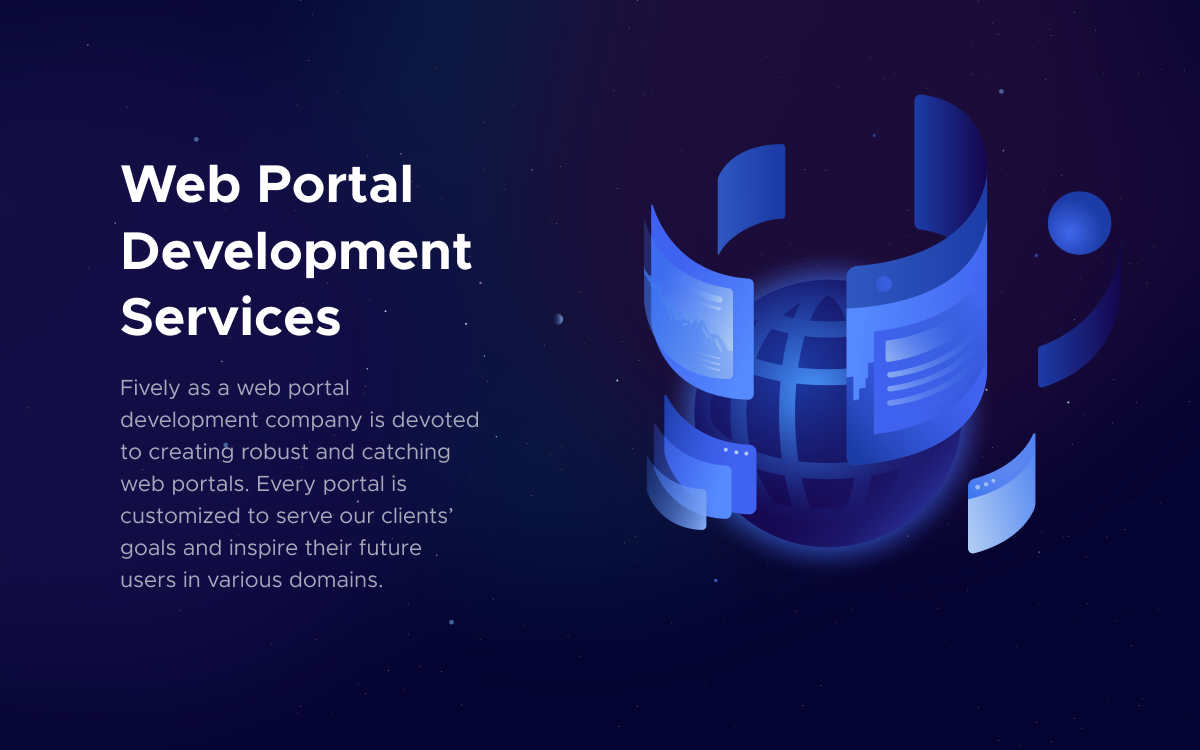
Need Help With A Project?
Drop us a line, let’s arrange a discussion




